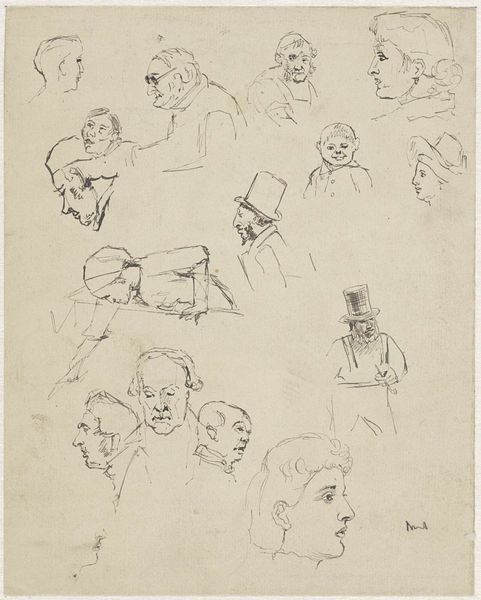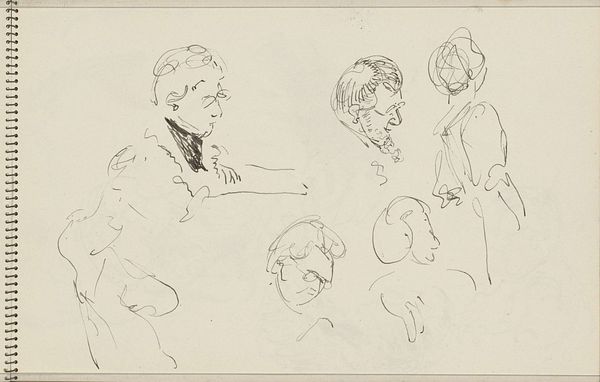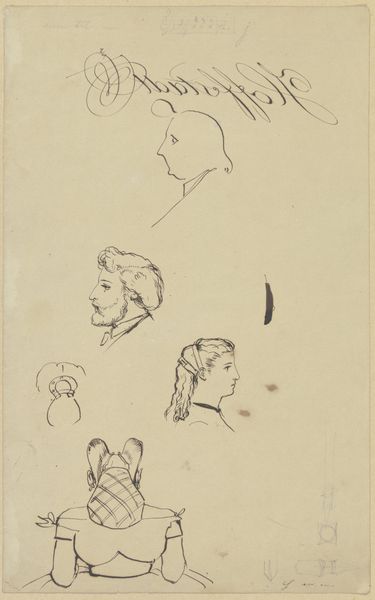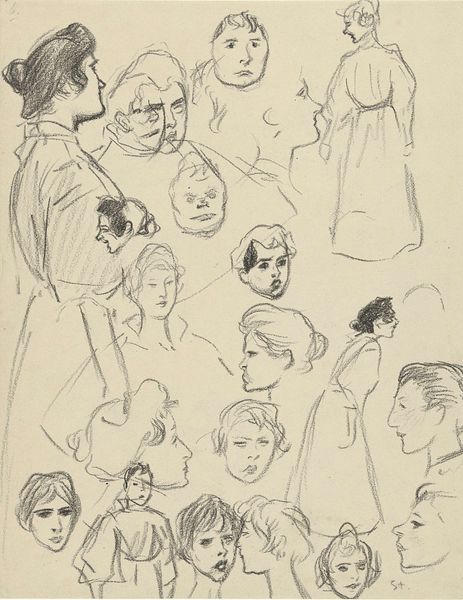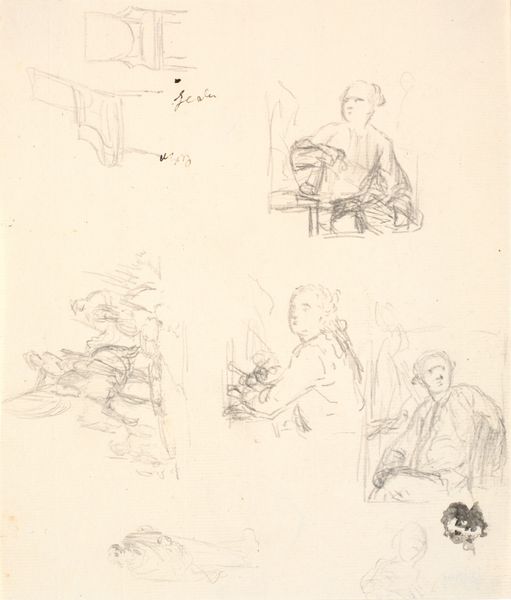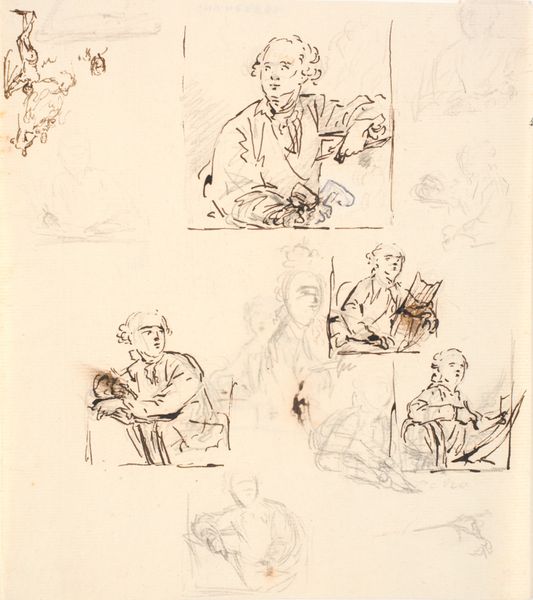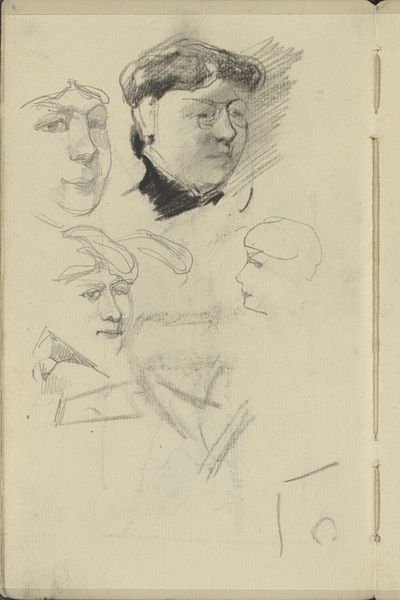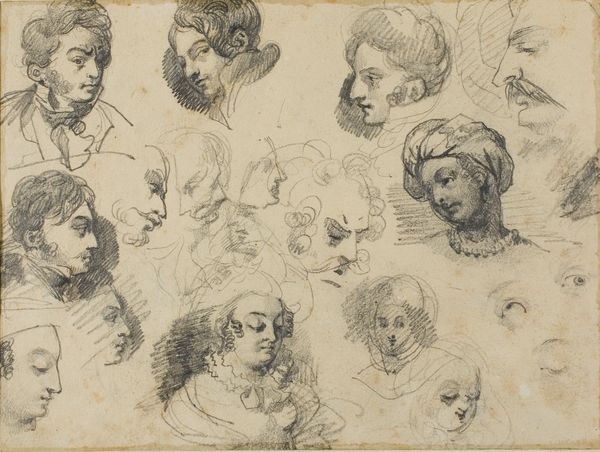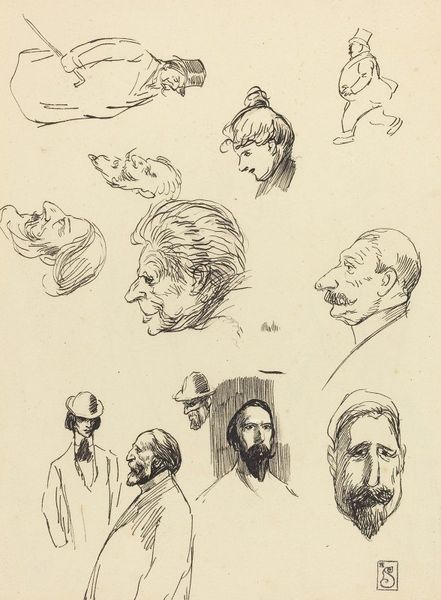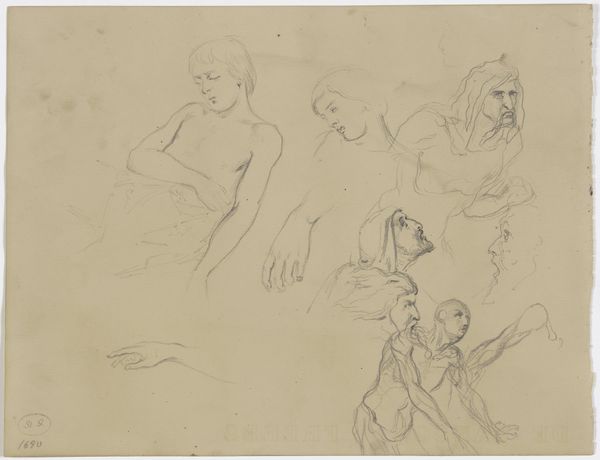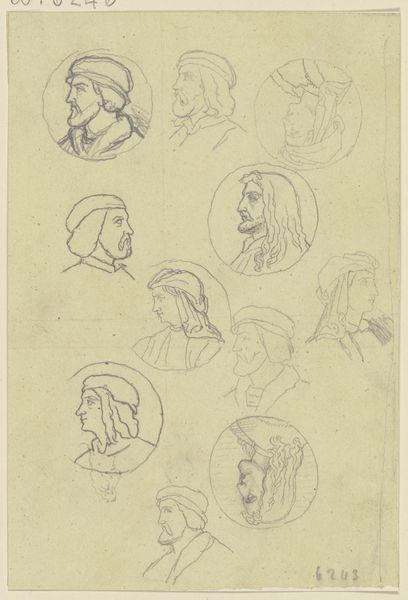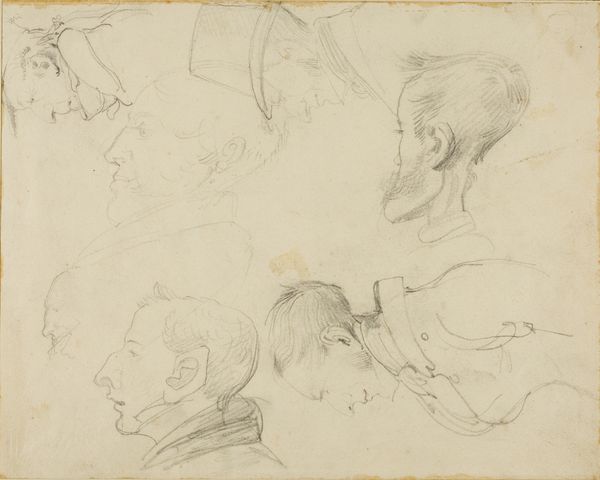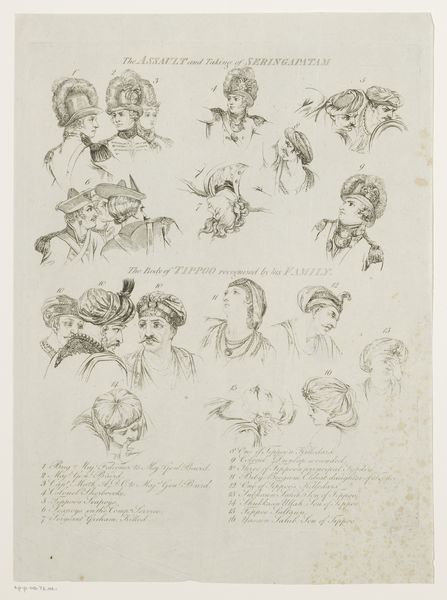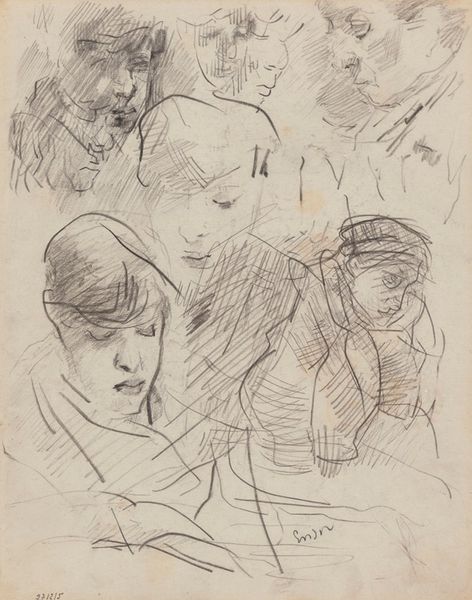
drawing, ink, indian-ink, pencil
#
portrait
#
drawing
#
comic strip sketch
#
imaginative character sketch
#
16_19th-century
#
german-expressionism
#
cartoon sketch
#
figuration
#
personal sketchbook
#
ink
#
german
#
idea generation sketch
#
sketchwork
#
ink drawing experimentation
#
indian-ink
#
pencil
#
sketchbook drawing
#
storyboard and sketchbook work
#
sketchbook art
Copyright: Public Domain
Curator: Before us, we have Eugen Klimsch’s “Studienblatt Köpfe, Hände und ein Friedensengel,” housed here at the Städel Museum. The work consists of various sketches in ink and pencil. Editor: It's like peering into the artist’s mind! I find a strange melancholy mixed with a hint of the ethereal, all caught in these loose lines. Curator: Yes, that melancholic atmosphere is partly due to the dominance of figuration within the composition, with heads, hands, and the prominent peace angel each carefully placed on the page to achieve a sense of balance. Note, also, how the varying pressure of the pencil and ink creates tonal depth and contrast. Editor: The angel feels a bit…out of place, no? Almost as if she's wandered in from another realm into this very human collection of studies. I wonder what Klimsch was pondering? Curator: It's precisely that juxtaposition which lends this sketch its power! The realistic rendering of hands caught in everyday gestures next to the symbolic angel. Note the careful construction. Klimsch perhaps seeks to reconcile the quotidian with the sublime? Editor: Or perhaps, to bring peace to the mundane? He has all these people captured in ordinary poses—brooding, contemplating a hand of cards… and then this winged figure emerges! It speaks of aspirations. The human spirit, restless with seeking transcendence even in low-stakes pursuits like poker. Curator: Interesting observation! One can infer the visual relationships created through line, shadow and the considered groupings allow us to discern not just what he could execute, but what perhaps drove him to consider linking together particular images over others? The organization suggests something about the creator himself. Editor: True, perhaps Klimsch himself felt the weight of the world, turning to both the simple act of sketching faces and imagining peace to lighten his load! I’m left with the sense that art is sometimes a meditation, and a method for reconciling with daily struggles! Curator: I agree. Viewing a piece such as this certainly reminds us how art's formal qualities, when properly investigated, reflect deeply seated facets of an artist’s conscious and subconscious aims.
Comments
No comments
Be the first to comment and join the conversation on the ultimate creative platform.
